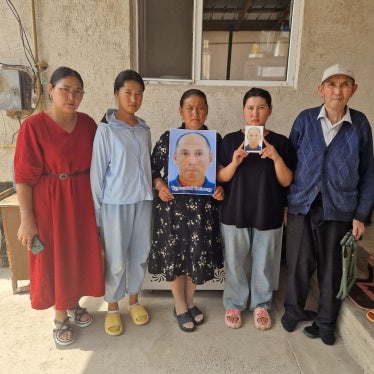(Dubai) - A new draft law to regulate the news media unlawfully restricts free expression and will unduly interfere with the media's ability to report on sensitive subjects, Human Rights Watch said in a report released today. The pending law also includes provisions that would grant the government virtually complete control in deciding who is allowed to work as a journalist and which media organizations are allowed to operate in the country.
The 13-page report, "Just the Good News, Please: New UAE Media Law Continues to Stifle Press," says that the new law contains some improvement over the draconian media law currently in effect. But it will continue to punish journalists for such infractions as "disparaging" government officials or publishing "misleading" news that "harms the country's economy." Human Rights Watch researched the report by analyzing the provisions of the pending law as well as interviewing foreign and local journalists based in the UAE.
"The law will muzzle the press, preventing honest reporting about the country's continuing financial crisis or about its rulers," said Sarah Leah Whitson, Middle East and North Africa director at Human Rights Watch. "Its vague clauses and harsh fines will almost guarantee arbitrariness by government authorities and self-censorship by the media."
The Federal National Council, the UAE's legislature, passed the draft law on January 20, 2009, and it awaits the signature of President Shaikh Khalifa Bin Zayed Al Nahyan. More than 100 leading Emirati academics, journalists, lawyers, and human rights activists have urged the president to reconsider the law. The Human Rights Watch report also urges the president not to approve the pending law in its current form.
Unlike the current law, the proposed law contains no criminal penalties and will be part of the civil law. It reduces the number of administrative infractions that media organizations can be held liable for. The law also instructs government institutions to facilitate information flow to media, and, most significant, mandates that journalists cannot be coerced into revealing their sources.
But, along with the continuing restrictions on content, the pending law has other provisions that do as much to harm press freedom as they do to improve conditions, Human Rights Watch said.
The law imposes exorbitant civil penalties that could bankrupt media outlets and silence dissenting voices found to violate the overbroad restrictions on content. Media organizations found to have "disparaged" senior government officials or the royal family face fines up to 5,000,000 dirhams (US$1,350,000), and those found to have "misled" the public and "harmed" the economy face fines of up to 500,000 dirhams (US$135,000). It also requires media organizations to post an unspecified security deposit against which fines may be charged, which would set a significant barrier to entry for smaller, independent press organizations.
Provisions governing media licensing do not clearly articulate the standards the government will apply in approving or denying licenses, effectively granting the government unfettered power to determine who may or may not publish information in the UAE, Human Rights Watch said. The pending law also gives the government power to suspend the licenses of newspapers, radio stations, and television channels for insignificant infractions of the law's vague restrictions.
The law also gives the government authority to regulate who can work as an editor, reporter, correspondent, or producer in the country. This authority is susceptible to abuse and infringes on the media's freedom of expression by preventing media outlets from organizing, managing, and operating free from governmental interference, the report says.
"These intrusions make a mockery of the notion that an independent media exists in the UAE," Whitson said. "The president has the option to send this law back and to show leadership in seeking a law that truly supports a free press."





